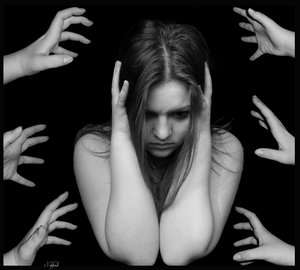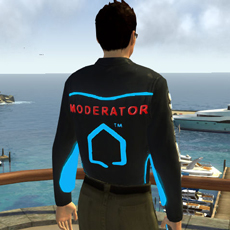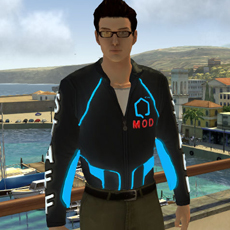Under the Veil of Anonymity: a Look at Cyber Bullying and Anti-Social Behaviour on Home
by CheekyGuy, HSM team writer
I’m kicking back one evening, lost in a game of Call of Duty, with a headset and a cold beer not too far from me. Then a playing buddy invites me over to a lobby and I think nothing of it; I just go over there. He has a local accent, a London boy, like me.
The game’s count down begins.
Before it even begins, the friend hosting the Multiplayer game begins saying some mean things to the opposing team members. “I hate the French,” he says. Insults get thrown back and forth. I stay quiet and don’t join in. I’m only guessing the host is not much older than I am, and he’s picking fights with kids over the internet. Some barely even out of school. I’m shocked to silence.
I suddenly feel ashamed.
There isn’t a visible presence, such as a Moderator on this game. It goes back to that old rule of “If you don’t like whats being said, don’t hear it.” Either this or opt out of the lobby or game altogether.
It does make me wonder, whether this type of cyber bullying exists on PlayStation Home, especially considering the “mafia family”/gang culture that we sometimes see. It did make me wonder: why do people behave in this way?
Perhaps being online gives a person a certain power in being anonymous, in that he can do whatever he wants, dish out a tirade before finally switching off the PS3. He can do that; he can walk away, leaving his victim feeling confused, violated and perhaps more than a little upset. He can’t be found or traced by any means, other than through an experienced computer technician or hacker.
 Times are changing, with more and more people wanting to make a stand against cyber bullying. Especially when it comes to children.
Times are changing, with more and more people wanting to make a stand against cyber bullying. Especially when it comes to children.
In North America alone, according to Internet Behaviour Consulting Company:
• 53% of kids admit having said something mean or hurtful things to another online
• 42% of kids have been bullied online
As an example, in May of 2012, a teenage girl complained on the PlayStation forum that she is being cyber bullied stalked and harassed for almost a year (up to that point). She begins to name him but is ultimately censored for doing so, on the Sony public forum. “Naming and shaming,” she is told by other Home users, is a big “no-no” and considered blacklisting, and that innocent or guilty, that person will now have a reputation. She is told to simply ignore the user and report so that the Moderators can respond.
But are we doing enough? Is there more that we can do?
The moderators of PlayStation Home get hundreds of messages like this and many more on a daily basis, every week. For those that are new to PlayStation Home, or one of our many new readers to HomeStation Magazine (welcome, take a seat, relax), Moderators (Or “Mods” for short) are members of PlayStation Home staff whose main role is to make sure everyone is abiding by the rules and playing well with others. In addition to roaming through spaces in Home, these employees of Sony Computer Entertainment are also responsible for processing all of the grief reports submitted by users and handling other related duties. Mods work to create a safe environment where people can play games, socialize, watch videos, and so on.
How will you recognize them?
Sometimes you’ll see the white text of a moderator speaking, but you won’t see the actual moderator anywhere nearby. This is normal. Moderators are often invisible so that they can do their jobs more effectively.
When visible, moderators can be identified by their signature Staff Jackets. These jackets are black with blue trim, and have “MODERATOR” written across the back in red letters, and “STAFF” written in white along the sleeves. They also have a Home logo on the front left chest with the word “MOD” underneath in red.
These are mostly members of the PlayStation Home Community team, which is responsible for a wide range of community-related activities, such as running community programs, planning holiday events, and ensuring that developers make content that meets the desires of the community.
Going Further
Of course there is only so much a Moderator can do on Home, and sometimes there are those on Home or anywhere outside of it that will threaten the use of violence against the individual. More often enough, they don’t carry out their threat, as it’s more designed to provoke their victim, but the threat can still be there.
 You may wish to take your complaint further. This is where law enforcement may have to step in.
You may wish to take your complaint further. This is where law enforcement may have to step in.
When receiving these threatening emails or messages, do not respond to them; stay calm and keep copies of the message you have received. In PlayStation Home, it is possible to take in-world photographs of a conversation taking place via it’s text. Save this image onto a USB drive, and if you have a computer nearby, plug it into your computer and extract it, using a printer, print this image out and send to a law enforcement agency, who can assist you further.
You can also log onto any anti-cyber bullying websites for help and information online if you wish to ask questions. There is help out there, you only have to look for it.
It is very rare on PlayStation Home you will encounter such threatening behaviour, but if you do, stay calm and report it, or do as mentioned above, if you wish to take the matter further.
There is a fantastic link for our young readers & their parents, it’s from the National Crime Prevention Council (NCPC), who are in partnership with Sony Creative Software & the Ad Council. They have information on cyber bullying & ways in which to stay Cyber-Safe. Click on to: http://www.ncpc.org/cyberbullying for more information.
PlayStation Home is there for your enjoyment, to go about freely and without fear.
Share
| Tweet |




Great article Cheeks. I think the new ignore features have helped some in these situations, blocking works too if you are being harassed by someone, it is kind of funny to see the word blocked above someones head in Home if you have done this actually, though others can’t see it you can. I have only blocked one person in my entire time in Home so far, so I take it very seriously.
I think a lot of what goes on in Home and elsewhere is frustrated kids, mostly male, who feel this is a place to take those feelings out without repercussions. That doesn’t make it right, but in some ways this place offers a safer environment for that kind of anger, better here than in the real world where physical harm can happen to others. Blowing off steam can work wonders, it is up to all of us as individuals to help divert that steam into more productive areas, not add fuel to the fire like many do in Home, kids mostly. Great read, I look forward to your next piece.
Wow Cheeky this is a really wonderful Article- Kudos on this. It needed to be said.